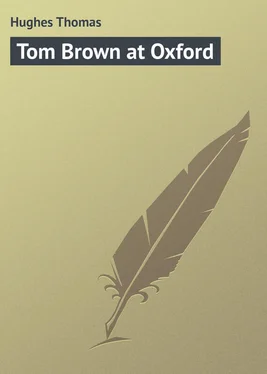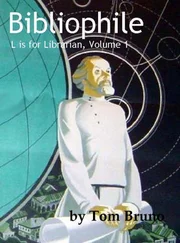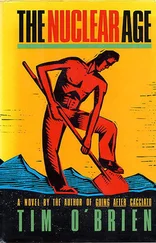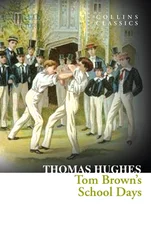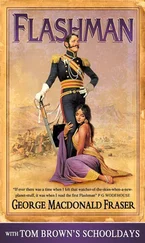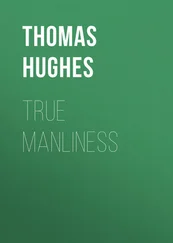Thomas Hughes - Tom Brown at Oxford
Здесь есть возможность читать онлайн «Thomas Hughes - Tom Brown at Oxford» — ознакомительный отрывок электронной книги совершенно бесплатно, а после прочтения отрывка купить полную версию. В некоторых случаях можно слушать аудио, скачать через торрент в формате fb2 и присутствует краткое содержание. Жанр: foreign_prose, foreign_language, на английском языке. Описание произведения, (предисловие) а так же отзывы посетителей доступны на портале библиотеки ЛибКат.
- Название:Tom Brown at Oxford
- Автор:
- Жанр:
- Год:неизвестен
- ISBN:нет данных
- Рейтинг книги:5 / 5. Голосов: 1
-
Избранное:Добавить в избранное
- Отзывы:
-
Ваша оценка:
- 100
- 1
- 2
- 3
- 4
- 5
Tom Brown at Oxford: краткое содержание, описание и аннотация
Предлагаем к чтению аннотацию, описание, краткое содержание или предисловие (зависит от того, что написал сам автор книги «Tom Brown at Oxford»). Если вы не нашли необходимую информацию о книге — напишите в комментариях, мы постараемся отыскать её.
Tom Brown at Oxford — читать онлайн ознакомительный отрывок
Ниже представлен текст книги, разбитый по страницам. Система сохранения места последней прочитанной страницы, позволяет с удобством читать онлайн бесплатно книгу «Tom Brown at Oxford», без необходимости каждый раз заново искать на чём Вы остановились. Поставьте закладку, и сможете в любой момент перейти на страницу, на которой закончили чтение.
Интервал:
Закладка:
It is to one of these occasions to which we must now turn. If the usual casual voyager of novels had been standing on Sandford lock, at about four, on the afternoon of April – th, 184-, he might have beheld the St. Ambrose eight-oar coming with a steady swing up the last reach. If such voyager were in the least conversant with the glorious mystery of rowing, he would have felt his heart warm at the magnificent sweep and life of the stroke, and would, on the whole, have been pleased with the performance of the crew generally, considered as a college crew in the early stages of training. They came "hard all" up to the pool below the lock, the coxswain standing in the stern with a tiller-rope in each hand, and then shipped oars; the lock-gates opened, and the boat entered, and in another minute or two was moored to the bank above the lock, and the crew strolled into the little inn which stands by the lock, and, after stopping in the bar to lay hands on several pewters full of porter, passed through the house into the quoit and skittle-grounds behind. These were already well filled with men of other crews, playing in groups or looking on at the players. One of these groups, as they passed, seized on the Captain, and Miller stopped with him; the rest of the St. Ambrose men, in no humor for skittles, quoits, or any relaxation except rest and grumbling, took possession of the first table and seats offered, and came to anchor.
Then followed a moment of intense enjoyment, of a sort only appreciable by those who have had a twelve miles' training pull with a coxswain as sharp as a needle, and in an awful temper.
"Ah," said Drysdale, taking the pewter down from his lips, with a sigh, and handing it to Tom who sat next him, "by Jove I feel better."
"It's almost worth while pulling 'hard all' from Abingdon to get such a thirst," said another of the crew.
"I'll tell you what, though," said Drysdale, "to-day's the last day you'll catch me in this blessed boat."
Tom had just finished his draught, but did not reply; it was by no means the first time that Drysdale had announced this resolve. The rest were silent also.
"It's bad enough to have to pull your heart out, without getting abused all the way into the bargain. There Miller stands in the stern – and a devilish easy thing it is to stand there and walk into us – I can see him chuckle as he comes to you and me, Brown – 'Now, 2, well forward;' '3, don't jerk;' 'Now 2, throw your weight on the oar; come, now, you can get another pound on.' I hang on like grim Death, – then its 'Time, 2; now, 3-'"
"Well, it's a great compliment," broke in Tom, with a laugh; "he thinks he can make something of us."
"He'll make nothing of us first, I think," said Drysdale. "I've lost eight pounds in a fortnight. The Captain ought to put me in every place in the boat, in turn, to make it water-tight. I've larded the bottom boards under my seat so that not a drop of water will ever come through again."
"A very good thing for you, old fellow," said Diogenes; "you look ten times better than you did at the beginning of the term."
"I don't know what you call a good thing, you old fluter. I'm obliged to sit on my hip bones – I can't go to a lecture – all the tutors think I am poking fun at them, and put me on directly. I haven't been able to go to lecture these ten days."
"So fond of lecture as he is, too, poor fellow," put in Tom.
"But they've discommonsed me for staying away," said Drysdale; "not that I care much for that, though."
"Well, Miller goes down to-morrow morning – I heard him say so," said another.
"Then we'll memorialize the Captain and get out of these Abingdon pulls. Life isn't worth having at this rate."
"No other boat has been below Sandford, yet."
And so they sat on and plotted, and soon most of the other crews started. And then they took their turn at skittles, and almost forgot their grievances, which must be explained to those who don't know the river at Oxford.
The river runs along the south of the city, getting into the university quarter after it passes under the bridge connecting Berks and Oxfordshire, over which is the road to Abingdon. Just below this bridge are the boat builders' establishments on both sides of the river, and then on the Oxfordshire side is Christchurch meadow, opposite which is moored the university barge. Here is the goal of all university races; and the racecourse stretches away down the river for a mile and a half, and a little below the starting place of the races is Iffley Lock. The next lock below Iffley is the Sandford Lock (where we left our boat's crew playing at skittles), which is about a mile and a half below Iffley. Below Sandford there is no lock till you get to Abingdon, a distance of six miles and more by the river. Now, inasmuch as the longest distance to be rowed in the races is only the upper mile and a half from Iffley to the university barge, of course all crews think themselves very hardly treated if they are taken further than to Sandford. Pulling "hard all" from Sandford to Iffley, and then again from Iffley over the regular course, ought to be enough in all conscience. So chorus the crews; and most captains and coxswains give in. But here and there some enemy of his kind – some uncomfortable, worriting, energizing mortal, like Miller – gets command of a boat, and then the unfortunate crew are dragged, bemoaning their fate, down below Sandford, where no friendly lock intervenes to break the long, steady swing of the training pull every two miles, and the result for the time is blisters and mutiny. I am bound to add that it generally tells, and that the crew which has been undergoing that peine forte et dure is very apt to get the change out of it on the nights of hard races.
So the St. Ambrose crew played out their skittles, and settled to appeal the Captain in a body the next day, after Miller's departure; and then being summoned to the boat, they took to the water again, and paddled steadily up home, arriving just in time for hall for those who liked to hurry. Drysdale never liked hurrying himself; besides, he could not dine in hall, as he was discommonsed for persistent absence from lecture, and neglect to go to the Dean when sent for to explain his absence.
"I say, Brown, hang hall," he said to Tom, who was throwing on his things; "come and dine with me at the Mitre. I'll give you a bottle of hock; it's very good there."
"Hock's about the worst thing you drink in training," said Miller. "Isn't it, Jervis?"
"It's no good, certainly," said the Captain, as he put on his cap and gown; "come along, Miller."
"There, you hear?" said Miller. "You can drink a glass of sound sherry, if you want wine;" and he followed the Captain.
Drysdale performed a defiant pantomime after the retiring coxswain, and then easily carried his point with Tom, except as to the hock. So they walked up to the Mitre together, where Drysdale ordered dinner and a bottle of hock in the coffee-room.
"Don't order hock, Drysdale; I shan't drink any."
"Then I shall have it all to my own cheek. If you begin making a slave of yourself to that Miller, he'll very soon cut you down to a glass of water a day, with a pinch of rhubarb in it, and make you drink that standing on your head."
"Gammon; but I don't think it's fair on the rest of the crew not to train as well as one can."
"You don't suppose drinking a pint of hock to-night will make you pull any the worse this day six weeks, when the races begin, do you?"
"No; but – "
"Hullo! look here," said Drysdale, who was inspecting a printed bill pinned up on the wall of the coffee hall; "Wombwell's menagerie is in the town, somewhere down by Worcester. What fun! We'll go there after dinner."
The food arrived with Drysdale's hock, which he seemed to enjoy all the more from the assurance which every glass gave him that he was defying the coxswain, and doing just the thing he would most dislike. So he drank away, and facetiously speculated how he could be such an idiot as to go on pulling. Every day of his life he made good resolutions in the reach above the Gut that it should be his last performance, and always broke them next day. He supposed the habit he had of breaking all good resolutions was the way to account for it.
Читать дальшеИнтервал:
Закладка:
Похожие книги на «Tom Brown at Oxford»
Представляем Вашему вниманию похожие книги на «Tom Brown at Oxford» списком для выбора. Мы отобрали схожую по названию и смыслу литературу в надежде предоставить читателям больше вариантов отыскать новые, интересные, ещё непрочитанные произведения.
Обсуждение, отзывы о книге «Tom Brown at Oxford» и просто собственные мнения читателей. Оставьте ваши комментарии, напишите, что Вы думаете о произведении, его смысле или главных героях. Укажите что конкретно понравилось, а что нет, и почему Вы так считаете.
